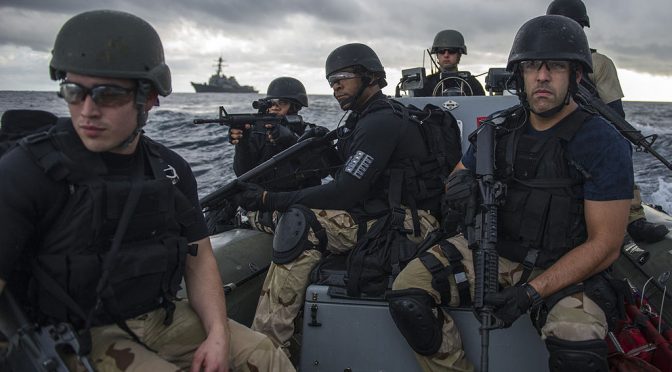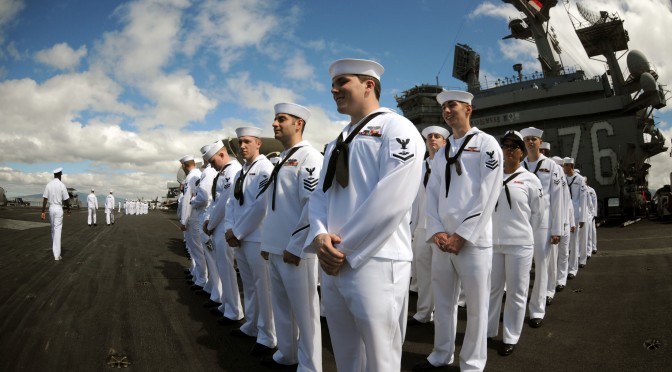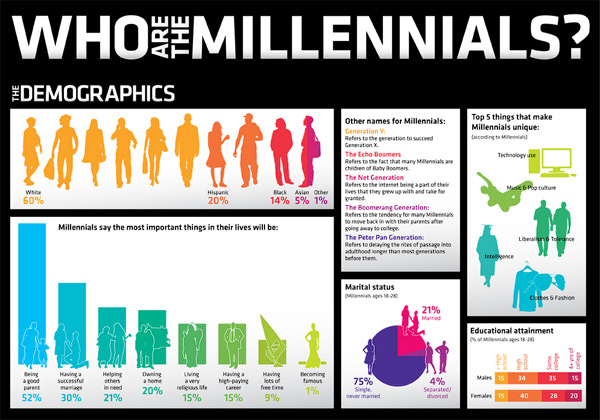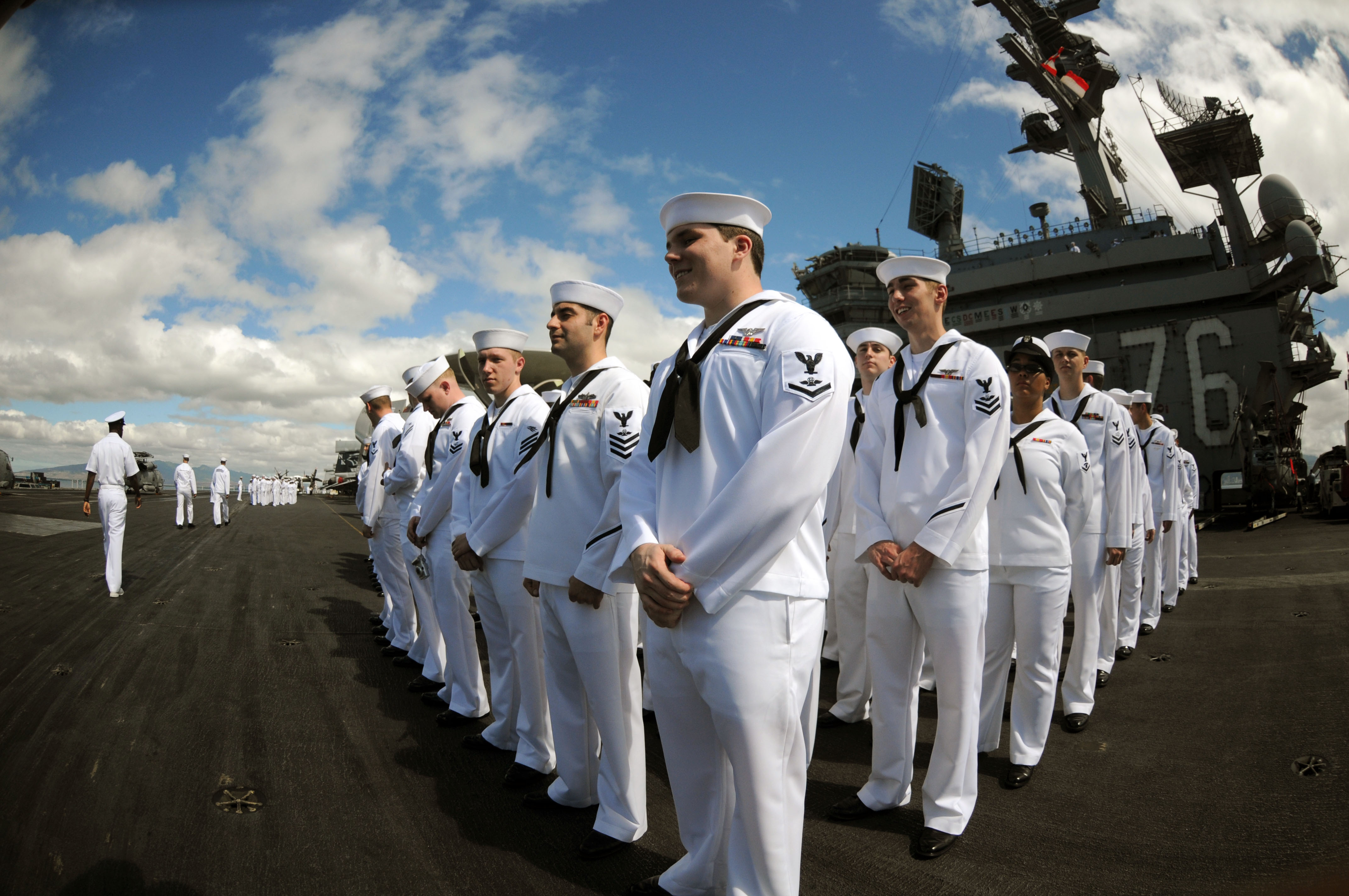By Matt Hipple
In the most recent edition of Proceedings, CDR Darcie Cunningham, USCG, describes what she sees as the strategic challenge of cultural friction between millennial expectations and the rigors of professional military duties in an article titled, “Millennials Bring a New Mentality: Does It Fit?“
Now, mind you, I can be pretty dismissive of my own Millennial generation at times, but the reality is that our newest generation of Sailors are professional, courteous and – based on the fact we are the most kick-ass navy on the planet – doing a damn fine job. For the USCG, the service of the author, I’m often jealous of the exotic, far-afield deployments of their Mobile Training Teams and the challenging mission they do with our partners. As a Patrol Coastal guy the Gulf, I was glad to have the WP’s there to carry some of the load. Here at home? The response during Hurricane season is always a testament to the Sailors of the Coast Guard. Is there REALLY a strategic “millennial culture” problem or are we using the idea to run away from our REAL problems?
To answer the first part of that question, I will endeavor to respond to 12 major points posed by CDR Darcie Cunningham. I hope this better frames the reality of the “millennial issue.”

1. “This generation has me questioning how they can acclimate to the highly traditional, structured U.S. military.”
To the cognitive bias about “traditional (&) structured” – let’s talk about a generation in “general” terms being able to acclimate to those traditions and structures. The article is right – the millennial generation cannot row for days on end and do not like the sound of leather drums. I also find the horned helmet a bit heavy and the hamlets we burn down a bit boring. I also do not feel it necessary to fire cannon salutes upon the departure of the CO’s dinghy – I would note that getting Non-Combat Expenditure Allocation (NCEA) can be a pain, and I’d like to maximize the ammunition I have for training. I would also likely die if subjected to liberal use of lashings. Barring that, I would then likely chafe at the idea of paying for my commission or being rejected due to my family’s social standing. I also do not have the disdain for my steam plant engineers that other Union Officers have. Finally, I do not, in fact, know how to splice a mainbrace. That said, we do power some of our ships by rending apart the very base material of the universe. The ships that burn boring ol’ dead dinosaurs can shoot a bullet down with another bullet in space. You take what you can get, I guess.

2. “The younger generation postures to work only the bare minimum number of hours required. Additionally, they continuously request more time off in the form of early liberty, shorter workdays, the ability to go home after an office luncheon, and so on.“
With greatly decreased crew sizes and 8-10 month deployments, can we REALLY complain when people try to get some extra leave in? Can we even claim they “work less”? Long-gone are the times of a 300+ DDG crew and a rope-yarn day. Is this “extra” time off, or just normal requests that are now a bigger deal due to the normal workload. Now, that said, if there is time for an “office luncheon”, likely there is nothing critical going on and no reason to stay around the office for tradition.

3. Upon hearing they would not be in-zone for promotion or advancement in a given year, these younger members declare they are fed up with the service and wish to resign. They have an expectation of accelerated advancement through the organization, without regard for the value that experience provides to those in leadership positions.
People complaining about being looked over for promotion would seem completely in-line with reactions since the time some random Athenian strategos was looked over for command during the Peloponnesian War.

4. There are an increased number of negative confrontations between very junior members and senior leadership. Rather than saying “Yes Sir” or “Yes Chief” when tasked with a project or simple task, our newer members frequently question why they have to do it.
First, we now have different mechanisms of enforcement. Before my time, there was the threat of getting roughed up – that no longer exists. Naturally – mechanisms exist in NJP, counseling, discussion where appropriate, etc… but threats & violence were damn scary, and likely without it there will be naturally more friction than before – and a good thing too BECAUSE…

Our systems are increasingly based on technical knowledge that decision makers will not have without prior in-depth training. There will be no more Da Vinci-like experts of all things. Where once it was possible to master the knowledge of a ship in 10 years – it can now be a challenge to truly master the nature of some single systems in 20. While belligerence is not excusable, is all this actually belligerence from the subordinate or sensitivity from the superior? I’ve seen some Petty Officers forced to get pretty bellicose in order to avert a stubborn lurch towards disaster. Once in awhile, I was the one lurching – and thank God for their candidness! These are motivated, intelligent, and dedicated folks. Maybe part of leadership is to know when that “why” or “what” comes from a place of honesty – I find it is not for the purpose of avoidance or excuse, but a desire to understand or improve. It’s an opportunity.
If I may, I would also quote Alex Smith’s lovely post at the USNI Blog, the “Call of the Deep.” In it, he notes, “Mahan’s diary as a junior officer is a fascinating read. Many of his entries lament about his fear of drinking too much and his abhorrence of superior officers. ‘The Captain has annoyed me, and I have felt and spoken angrily and sullenly.'” Oh, that rascal millennial and his complaints – and a diary? Pshaw!

5. Customs and courtesies are eroding. Juniors are no longer smartly saluting seniors or verbally acknowledging higher ranks. On an almost daily basis, I hear, “Hi, how’s it going?”
There is some truth here. Perhaps we can be a bit more informal at times. It’s not a deadly sin, if a sin at all, but I suppose there are places where we could shore things up a bit. I, for one, do find more use in candid superior-subordinate engagements that usually lead to a bit more informality. That said, once I leave my office for lunch, I am pretty much saluting until I get back indoors if there is heavy foot traffic. I don’t see any slack in the saluting department and, personally, I like it. It allows me to salute back- which is the part I like. Call me a romantic.
6. Texting is becoming the primary mode of communication. It has already become a means of jumping the chain of command as a condoned communication tool.
Before we start, let us be clear about the problems here – “Jumping the chain of command” is not a “texting” problem. That is like saying a negligent discharge is a “bullet” problem. We shall touch on both.
To jumping the chain of command: Do we really see that much? I would say no. Let’s not stop there, however. When we do, is it always so bad? Is the problem one of people being sneaky or people trying to get things done in a timely manner. We all read the message-to-Garcia story as MIDN – is an hour of work-stoppage waiting for approval acceptable in an already daunting pile of PMS and repair issues? Of course, we do have an increasingly large number of supervisors and mangers running in parallel… perhaps an up-tick in “jumping the chain of command” is a natural side-effect of the increased number of bosses and not a symptom of generational issues?
To texting: there was a time when Sailors crossed the brow and didn’t come back until the next day – or Monday. There was no command expectation to have a cellphone leash at all times. In fact, many commands now require Sailors to have cellphones so they can be recalled. Texting is a short, to-the-point communication that can be sent to the entire command’s pocket – the ability to “leave a text” so someone comes in after a major casualty or maybe just a quick tool for finding people in one’s work-center. Sounds like a success for readiness.
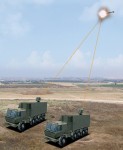
7. We must educate them on the importance of patience in our systems.. If this doesn’t sit well with a young member, he or she should be subtly reminded of the current economy and associated unemployment rate.
A subtle reminder that if many of our management methods were used in a competitive market, our company would be exterminated within months. Anyone who clung to these systems because they were “what we had”, advocating for them merely because they were what they knew, would be quickly fired. Anyone who could think critically about these issues would be well on their way to success (though, granted, those who just complained about them endlessly would ALSO probably be fired). Must we automatically ascribe selfishness to the folks who think we can do better? If our service members expect our world-class military to function on a world-class level, good on them! If we say we’re the best, we should want to be the best.
8. They need to be “course-corrected” immediately if they show signs of insubordination or disrespect.
This happens every day – I have seen it, done it, and had it done to me. It is correct and appropriate. However, we must be careful to realize that, while the line may be fuzzy, informality is not “disrespect” and disagreement is not “insubordination” – the latter especially.
9. We must get back to basics. Customs and courtesies are the foundation of our military traditions.
(later)
While I embrace the fact that we have a new generation that’s better educated, technologically astute, and poised to preserve our nation’s liberties, I also hope we can find a middle ground that will capitalize on their strengths and preserve our proud traditions.
We defend the constitution; we fight and win our nations wars – THAT is our “basic”. THAT is our foundation. THAT is our #1 priority. In Norfolk, there is a stand that claims to hold the lovely wooden helm from the USS MAINE – replaced for metal as our relationship with Spain began to strain. The customs and courtesies that change with time and tide as we pursue the mission are for us to decide and are of secondary importance.
As for where that tradition comes from, from E-1 to O-9, we all take part in creating a service-wide culture that merges tomorrow’s yesterday with ours. This gets at the subtle problem with the turn of phrase used here. Customs and Courtesies are not the foundation of our military tradition. Our military tradition is defined by our customs and courtesies. The article is right – things have changed. They always have. Harness that and use it – many of these things have changed for a reason. Tradition is not something we keep preserved in a jar passed to us in perfect form from the first Sailor. From our youngest SN with his iPad to our flush-faced comrades in the Continental Navy after a night of grog – each of Sailor in their own time is creating tradition for the next generation.
10. They also need positive feedback early and often. Little gestures such as going to their offices and offering accolades for jobs well done gives encouraging reinforcement and the feedback for which they hunger….
I’ll be the first to admit there are many things about my generation I cannot stand, though I reject that this characterization is correct for our warfighters – but, let’s entertain a small kernel of truth here. Why DO millennials sometimes engage in such childish shenanigans?
It’s this very perspective that enables nonsense. No, don’t treat your grown-up, educated subordinates like children; they are not gentle flowers. Do not create the self-fulfilling prophecy by choosing the easy, comfortable route of leadership by coddling and participation trophies. What they’re looking for is constructive input – good and bad- not blind accolades.
11. And finally . . . this needs to be said: We must be prepared for the tough conversation. Will they truly be able to adapt to the service?
Truly realize who we are talking about. These are uniformed service members who joined up in wartime to make a difference – what they’re looking for is knowledge and relevance, not a fight with their boss or some empty accolade. It is a mature desire, one informed by a drive to defend our way of life, in the best way they can, at potentially shattering cost.
12. “If millennials are more focused on what’s in it for them, they may not be the right fit.”
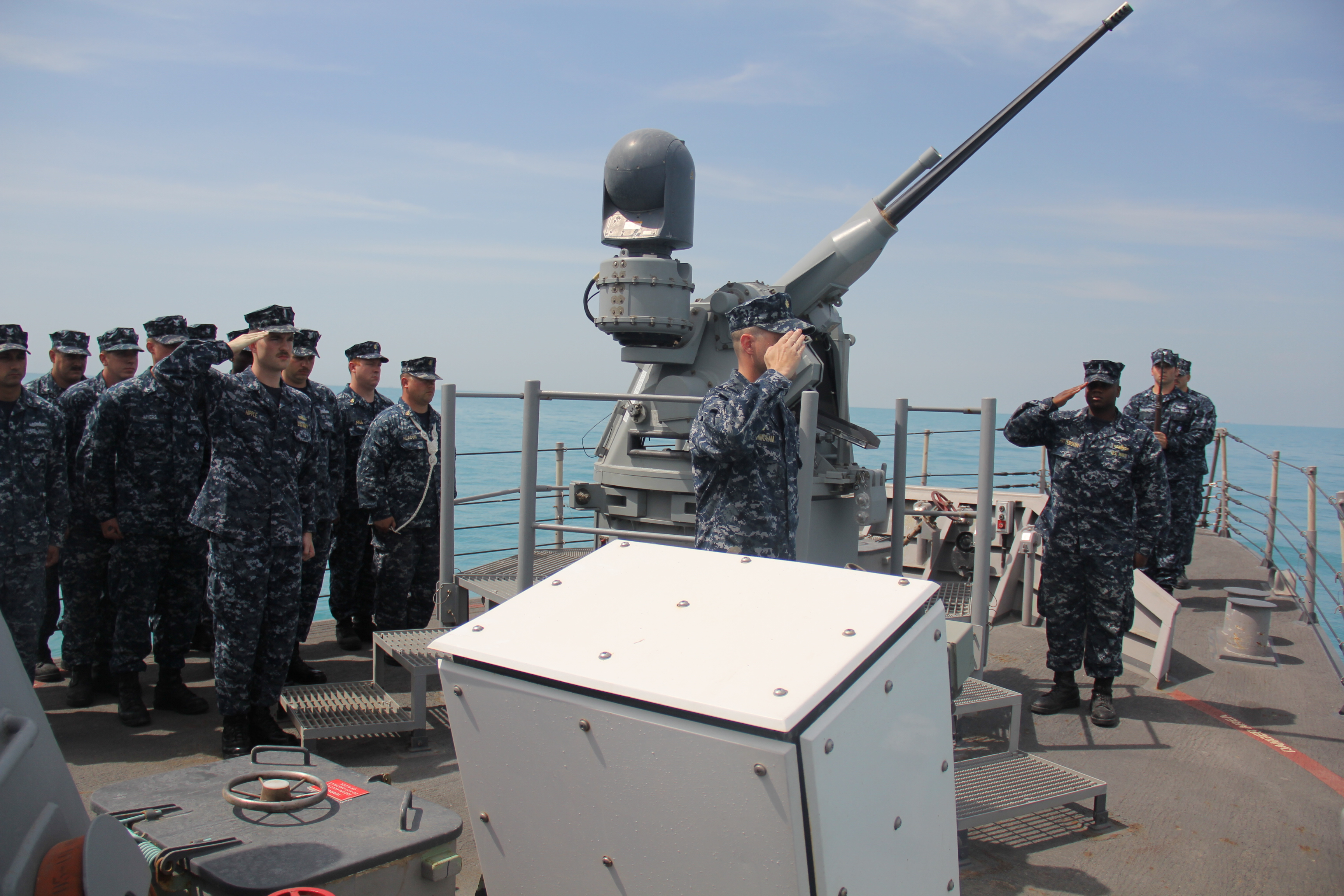
I may have neither risked nor sacrificed as much as many of my friends who served on the front lines of the Global War on Terror, but I did serve on the USS FIREBOLT and refurbished the 3 stars embedded in the floor of the mess decks. From the 2004 terrorist attack on ABOT and KAAOT, one of those stars belongs to DC3 Nathan Bruckenthal, first USCG wartime casualty since Vietnam. He didn’t ask what was in it for him.
Millions have gone out to the front lines of our global war against terror and not asked what was in it for them. Thousands have not come back – they did it for what was in it for us, the ones that live. They are all Americans, but one could throw a superficial label like “millennial” on many. Remember, when we write these kinds of articles, we are talking about leading people who, in the course of war, will have to kill – and some may have to die – in the service of their country. This kind of “millennial this” and “millennial that” talk doesn’t match that reality. This kind of talk is NOT what -we- should have “in it for them.”
I by no means think the purpose of this article was to ignore the great work of our shipmates, the ultimate sacrifice of our comrades, or the potential of so many others to bear that burden as well – but nevertheless, this kind of sentiment ultimately ignores it.
Matthew Hipple is a naval officer by choice and millennial by cruel twist of fate.

